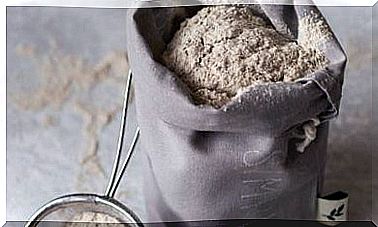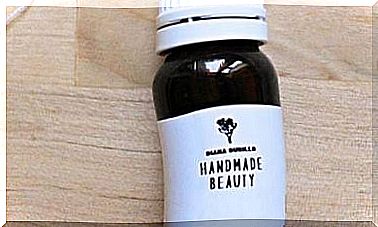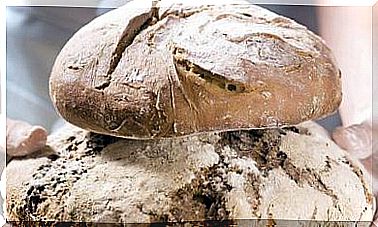The 8 Secrets To Increase Your Health And Longevity
Through some factors such as diet and exercise we can increase the chances of improving well-being over the years.

Being born with an inherited fortune does not ensure by any means that you will reach old age while being rich. The greatest wealth can be squandered in a few crazy years. On the other hand, a humble person, with work and luck, can live in abundance. But it is useless to be poor or rich without health.
This is more important than money, although its enjoyment depends on similar requirements: it is not advisable to waste it and you have to work it every day. Let’s continue with the materialistic metaphors. A few centuries ago, inheriting a title of nobility was a guarantee of prosperity. It’s not like that.
Before it was considered that social classes were immutable and also until a few years ago the idea that inherited genes completely conditioned health dominated . Today it is known that genes have only a 10 to 30% influence on the possibility of developing a health problem, according to epidemiologists Stephen Rappaport and Martyn Smith of the University of Berkeley.
Take care of yourself day by day
It is true that there are genetic problems that it is not possible to get rid of, but the most frequent diseases appear as a consequence of what happens to us in life. The diet, the physical environment, the habits of rest and work, the physical activity or stress affect between 70 and 90%.
In the same way that the myth of genetics has fallen, two other pillars have been cracked against which it seemed that nothing could be done. One was that of neuronal death. It was assumed that after the vital stage of development neurons began to inexorably die and that therefore intellectual and physical decline was inevitable. The race to the finish could be more or less slow.
Today we know that new neurons are constantly being born and, above all, that increasingly complex connections are being established, which provides new intellectual abilities. The wisdom of the elders is thus something more than a praiseworthy phrase. A mentally active life allows you to reach old age in full capacity.
Cells rejuvenate
The third pillar that until recently was associated with a continuous and inescapable deterioration was that of the telomeres, the ends of the chromosomes. With each cell division these become shorter, which causes deterioration and ultimately the death of the cell. Having telomeres shorter than what is appropriate for age was considered a risk factor for cancer, among other diseases.
But Dean Ornish, renowned cardiologist, who was Bill Clinton’s personal physician, has just shown that telomeres can be lengthened with a healthy lifestyle, based on an essentially vegetarian diet, physical exercise and stress management.
Fate is not written in genes, the brain can expand its potential and cells have a certain capacity to rejuvenate themselves. Therefore, our current and future health heritage depends largely on processes that can be influenced by our behavior. The objective of healthy habits is precisely to increase this heritage.
Eat to feed the flora
The body extracts from food the substances it needs for its proper functioning. But in this process there is an intermediary. In the intestine there is a very close interaction between nutrients, bacteria and immune cells that can support health or lead to very different disorders.
Every day there is more evidence that the state of the intestinal flora is crucial for health, and not only for the digestive system. A good part of the 100 billion microorganisms that the human body houses and that make up the microbiome live in the intestine. The digestive flora is made up of bacteria belonging to some 500 species.
Health largely depends on which ones are dominant. Various types of cancer, autoimmune diseases and allergic disorders can be related to the type of intestinal flora. Food is the most important and accessible means of influencing its composition and increasing general health capital.
The five basic dietary guidelines are easy to list:
- Moderation in quantities.
- Prefer whole plant foods, as provided by nature, and cook them gently (steamed, at a low temperature for a short time). Its soluble fiber is a good nutrient for beneficial bacteria in the intestine.
- Consume industrially manufactured products in moderate amounts, especially if they contain refined flours, saturated or partially hydrogenated fats, additives and added sugars. The consumption of these products is related to imbalances in the flora.
- Include daily five to ten servings of foods concentrated in micronutrients (vitamins and minerals) and antioxidants: fruits, vegetables, nuts, seeds, spices and aromatic plants.
- Do not forget the presence in the daily menus of some source of omega-3. The most abundant are the walnut and the seeds and oils of flax, sacha inchi and hemp.
In harmony with the environment
The composition of the microbiome also depends on the type of environment we live in. Children who grow up in the fields, in contact with the land, plants and animals develop a type of flora, antibodies and immune cells that lead to fewer allergies and are probably at a lower risk of other diseases.
There is always time to regain contact with nature and to avoid exposure to toxic compounds . The pollution caused by transportation, factories or incinerators; the toxic components of detergents and cosmetics; the volatile organic compounds released by all types of glued objects; the substances released by plastic containers. .. all are loads that the body is forced to identify, eliminate or bear.
Exposing yourself as little as possible and regularly performing detoxification cures will help prevent these substances, which tend to accumulate especially in fatty tissues, from becoming a problem in the medium and long term.
The importance of the social network
We are not referring to Twitter or Facebook, but to flesh and blood networks of personal relationships. The quality of intimate and social relationships is an essential factor. Not only what the body feeds determines our current and future health.
Loving and being loved, and having the support of a community made up of family, friends and neighbors, with all the positive effects on mood, is one of the factors that guarantees a higher quality of life at advanced ages –probably, More than just having a bulky checking account or health insurance.
This circumstance is attributed, at least in part, the longevity of the inhabitants of the Japanese island of Okinawa. There it is not strange to exceed one hundred years in good health, something that is also tried to explain by their regular consumption of green tea, vegetables, fresh fish and spices such as turmeric.
Positive relationships help keep chronic stress, another health risk factor, at bay. If the anxiety is maintained over time, it will remove zeros from the health capital.
To avoid this, it is advisable to practice some technique daily, such as Jacobson’s progressive muscle relaxation, autogenic training or sophrology. Meditation also implies relaxation, in this case of mental automatisms and prejudices, and is also a path of self-knowledge and vital openness.
Meaningful mental activity
Like a muscle, the brain needs training to stay in good shape and develop its potential. Training is about providing the right stimuli. But the proposals that do not take into account the human being as a whole are not the most appropriate.
We are not computers that accumulate information. Doing crosswords, solving puzzles or playing with programs supposedly designed to exercise the brain is not enough. The neurobiologist Holger Schulze, from the University Erlangen-Nuremberg (Germany), proposes that we be open to learning new things that make some sense in our personal history.
An effective mental activity is related to curiosity and this, in turn, to motivation. For example, if we like to travel, we will be interested in learning languages.
Physical exercise
Keeping your brain fit is just one component of an active life. Body activities that exercise the whole body are just as important : movement is positive for blood flow to the organs, strengthens the heart, reduces hypertension, prevents or relieves back pain, regulates the levels of fats and sugars in blood, strengthens muscles , prevents loss of bone density and helps keep excess weight at bay.
Experts recommend a minimum of half an hour of intense exercise (high heart and respiratory rates) two days a week. It must also be a complete exercise, that is, it must work on endurance, muscular strength and flexibility (stretching).
Another aspect of physical care has to do with body awareness, that is, paying attention to the messages that come from the body. At any time and circumstance, you have to stop for a few moments to discover where tensions occur and if it is possible to relax them.
It is the first step to maintaining correct body posture at work, eating, driving, waiting in line at the bakery or on the sofa at home. If these tensions, which can affect internal organs, are not acted on in time, body patterns are established that over time are difficult to modify.
A good investment for the future
Saving money for future capital often means giving up today. It may happen that you live like a poor person and be the richest in the cemetery …
Fortunately, the same is not the case with health capital. It is by taking care of and enjoying the healthiest foods every day, your own body and contact with others and with nature that greater well-being is achieved both now and in the medium and long term.









